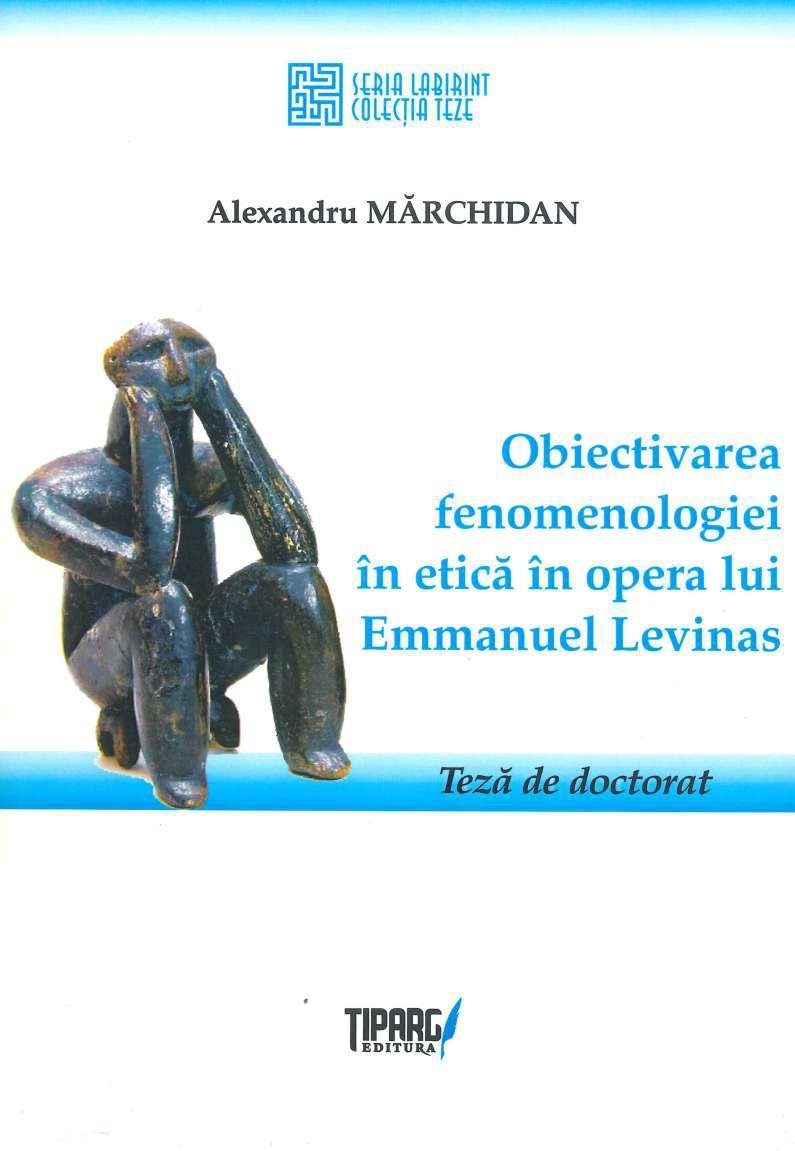


















vedere, iubirea este considerată a fi „vizionară", fiind acceptarea unui tip derelaţie cu celălalt.
LS.2. Teoria levinasiană a subiectului, o continuare a tradiţiei
filosofi-ce occidentale
Privitor la teoria subiectului, a sinelui, aşa cum este construită deEmmanuel Levinas, apar şi interpretări care susţin că aceasta nu este atât deoriginală · pe cât a fost considerată. Dimpotrivă, reprezintă o apărare şicontinuare a ideii carteziene de subiect absolut, independent. Teza articolului
„Encountering the Modem Subject in Levinas" 16I - aparţinând autoarei LeoraBatnitzky - este aceea că descrierea fenomenologică levinasiană a subiectului,atât în Totalitate şi infinit cât şi în Altfel decât a fi sau dincolo de esenţă, îi esteîn mare măsură datoare lui Descartes.
Levinas transformă egologia husserliană într-o etică a celuilalt; prinraportarea la Husserl, el se întoarce de fapt la Descartes. Mai mult însă, în timpce părintele fenomenologiei localizează eroarea carteziană în afirmaţia că eulreprezintă o parte a lumii, Levinas reafirmă, împotriva lui Husserl, această idee.
Principala afirmaţie din lucrarea Totalitate şi infinit nu se referă, consideră
autoarea, la obligaţia pentru aproape - aşa cum cred cei mai mulţi. Deşi, întradevăr, problema neliniştii şi a obligaţiei apare insistent în toate cărţile începândcu cea amintită, argumentul de bază vizează independenţaI62 subiectului. Abiadupă realizarea acestei sarcini el îşi susţine propria perspectivă asupra eticii 163.
161 Apărut în Yale French Studies, No. 104, Encounters with Levinas, 2004, pp. 6-21.
1 62 Acest aspect este remarcat şi de Roland Paul Blum (în articolul „Emmanuel Levinas'
Theory of Commitment", în Philosophy and Phenomenological Research, Vol. 44, No.
2, Dec., 1983, p. 158): "The theory of separation is a theory of individuation. 1n conformity with Levinas' general point of view, the self will be defined independently of a totality or system. ( ... ) That "separation" starts with the selfs constituting itself is made quite clear and literal in Levinas' long elaboration of the idea of "Interiority and Economy''. There he seeks to show how the self becomes itself through an activity of enjoyment relative to which all teleology is secondary".
1 63 Leora Batnitzky, op. cit., pp. 6-7: "by appreciating the actual argument of Totality and lnfinity, we can grasp Levinas's central philosophical claim, which is not, as many might believe, a claim about the selfs obligation to the other. While this contention of course marks Levinas's entire philosophical project, his central argument in Totality and Jnfinity is for a separable, independent subject. If Levinas can adequately describe and argue for such a subject, then his claim about ethics follows". Vezi, de asemenea, şi pagina 11: "what I would like to make clear is that the central argument of this work is for the separable self. Levinas's radical claim about ethics rests neither on a philosophical argument for altruism nor even on a philosophical argument for ethics per se. Rather, I suggest that the philosophical claims of Totality and Jnfinity rest upon Levinas's attempt to affirm phenomenologically a picture of an independent, isolated subject".
72




























